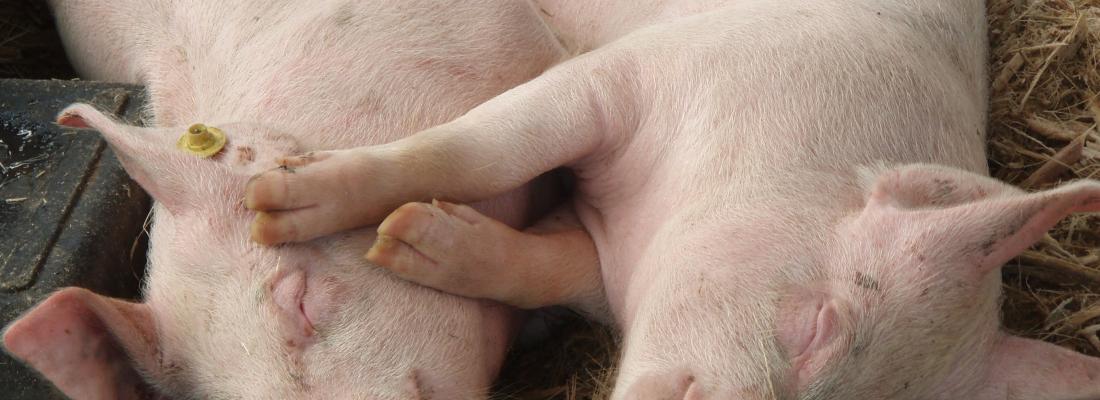Climate change and risks Reading time 3 min
Improving the robustness of pig production in the face of extreme weather events
Published on 11 January 2018

While many studies have attempted to measure the consequences of global warming on agriculture, this exercise had not been conducted for pig production. This has now been corrected through the PIGCHANGE project -Assessment of the impact of climate change on the French pork industry. “Pig producers don’t feel concerned yet, but they will have to anticipate in order to be able to adapt and safeguard their income,” explains David Renaudeau, of the Pégase research team in Rennes, Brittany. “For the first time, our work has made it possible to quantify the degree of vulnerability of farms and suggest solutions.”
Heat waves in 2080
Researchers projected themselves forward to 2080, when episodes of extreme heat will be more frequent, bringing with it consequences on animal performance and well-being. In these conditions, pigs regulate their temperature by decreasing their production of metabolic heat, in other words, they eat less.
Researchers used a model to evaluate the impact of global warming on the thermal environment in buildings housing pigs and on animal performance. In addition, two production scenarios were considered, one based on the current socio-economic context and the other simulating different changes in the purchase price of feed and the sale price of carcasses. This work is the result of a collaboration between geneticists, nutritionists, climatologists, mathematicians, Météo-France and IFIP, France’s pig institute.
Feed and building management
And the results? “Considering the evolution of the production system, the impact of global warming will be reasonable, at least in the short term, because it will be partially offset by progress in genetic selection,” says David Renaudeau. “However, the seasonality of animal performance will be more noticeable, in connection with warmer and longer summers. These uncertainties may have an impact on performance if the producer does not anticipate them.”
Among the solutions: feed composition, precision feeding and improvements to the management of the environment of livestock buildings.
One of the challenges for PIGCHANGE is to transfer the results to those working in the sector. “The objective is to provide elements for dialogue with producers. This work is also international in its scope because half of the world’s pork production is in hot regions, such as South-East Asia and South America.”
Genetic leverage
While genetic selection has increased the sensitivity of pigs to changing environments, it could now help improve their robustness. Against this background, the PIGHEAT project has been launched with the objective of providing knowledge and tools to select species which are less sensitive to their climatic environment.
Reference:
Renaudeau, D., Gourdine, J.-L., Hassouna, M., Robin, P., Gilbert, H., Riquet, J., Dourmad, J.-Y. (2015). «PigChange»: a project to evaluate the consequences of climate change and mitigation options in pig production. In: Abstracts of the climate smart agriculture 2015 (p. 169). Presented at 3. Climate Smart Agriculture, Montpellier, FRA (2015-03-16 - 2015-03-18). Poster, abstract.
